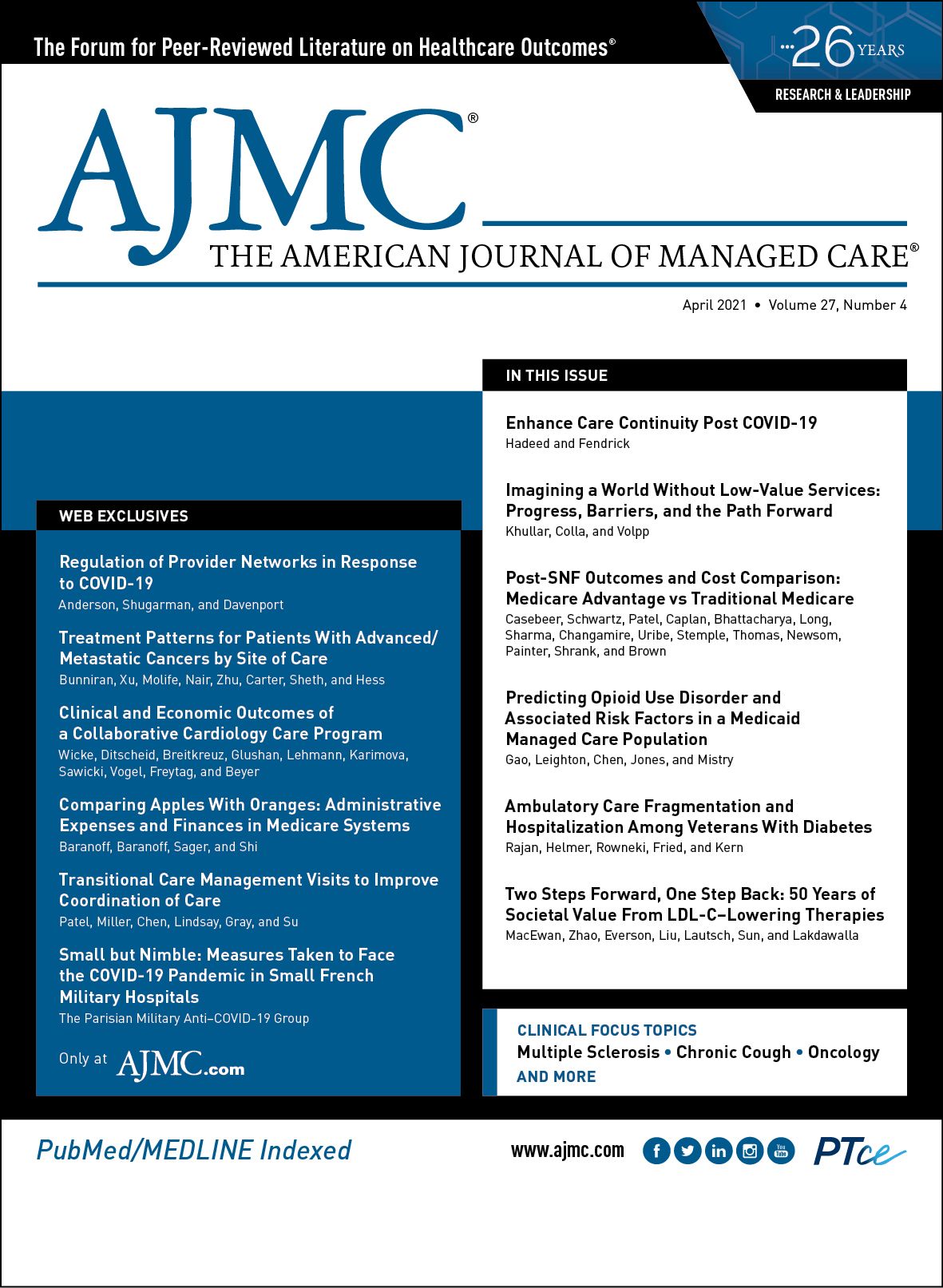- Center on Health Equity & Access
- Clinical
- Health Care Cost
- Health Care Delivery
- Insurance
- Policy
- Technology
- Value-Based Care
From the Editorial Board: Charles N. Kahn III, MPH
The coronavirus disease 2019 (COVID-19) pandemic has created unprecedented challenges for providers and patients. An urgent need for rapid access to COVID-19 testing, treatments, and vaccines has ushered in federal and health plan policies to eliminate barriers to care. Federal COVID-19 relief legislation eliminated co-payments for many of those services and paused prior authorization requirements for testing.1
Prior authorization policies may pose a barrier to timely and necessary medical services, which can delay acute and postacute care. When quick intervention is necessary, delays can reduce quality of care and increase disease burden. For hospital patients, delays in prior authorization result in longer stays that drive up costs. Procedures for obtaining prior authorization are often burdensome and vary among payers. Appealing prior authorization decisions is frequently onerous and disheartening for patients as well as their providers—indeed, few Medicare beneficiaries and providers pursue such appeals.2
In September 2018, the HHS Office of Inspector General (OIG) reported on Medicare Advantage (MA) plan prior authorization policies and appeals.2 The OIG found high rates of overturned prior authorization and payment denials and identified problems related to denials of care and payment. Among other recommendations, the OIG urged HHS to address inappropriate denials and insufficient denial communications.
Legislation introduced during the last Congress (Improving Seniors’ Timely Access to Care Act, HR 3107) would take important steps toward improving prior authorization under MA. It had broad patient and provider support, and we encourage the managed care community to implement these improvements.
Further, as managed care plans consider their postpandemic policies, they should examine the impact of prior authorization requirements, including on access to postacute care. Actions to reduce the burden of prior authorization, interfere less with patient care, save administrative costs, and better target overuse, waste, and abuse include:
- ensure prior authorization decisions are timely and negative determinations indicate the reason for the denial;
- sunset programs with very high approval rates;
- improve transparency by providing detailed information on prior authorization policies and tracking and reporting rates of approvals and denials;
- increase standardization of prior authorization policies, operations, and forms through the use of electronic transmission of prior authorization requests;
- ensure prior authorization programs adhere to evidence-based medical guidelines and include continuity of care for individuals transitioning between coverage policies;
- eliminate additional prior authorization for medically necessary services performed during a surgical procedure that already received, or did not initially require, prior authorization; and
- establish “gold carding,” under which payers reduce prior authorization requirements for providers that have demonstrated a consistent pattern of compliance, improving efficiency and resulting in more prompt delivery of health care services.
These key improvements will promote transparency, efficiency, and timely decision-making, which ultimately will lead to better patient care.
REFERENCES
1. Families First Coronavirus Response Act, Pub L No. 116-127, 134 Stat 177 (2020).
2. Medicare Advantage appeal outcomes and audit findings raise concerns about service and payment denials. HHS Office of Inspector General. September 25, 2018. Accessed March 29, 2021. https://oig.hhs.gov/oei/reports/oei-09-16-00410.asp


